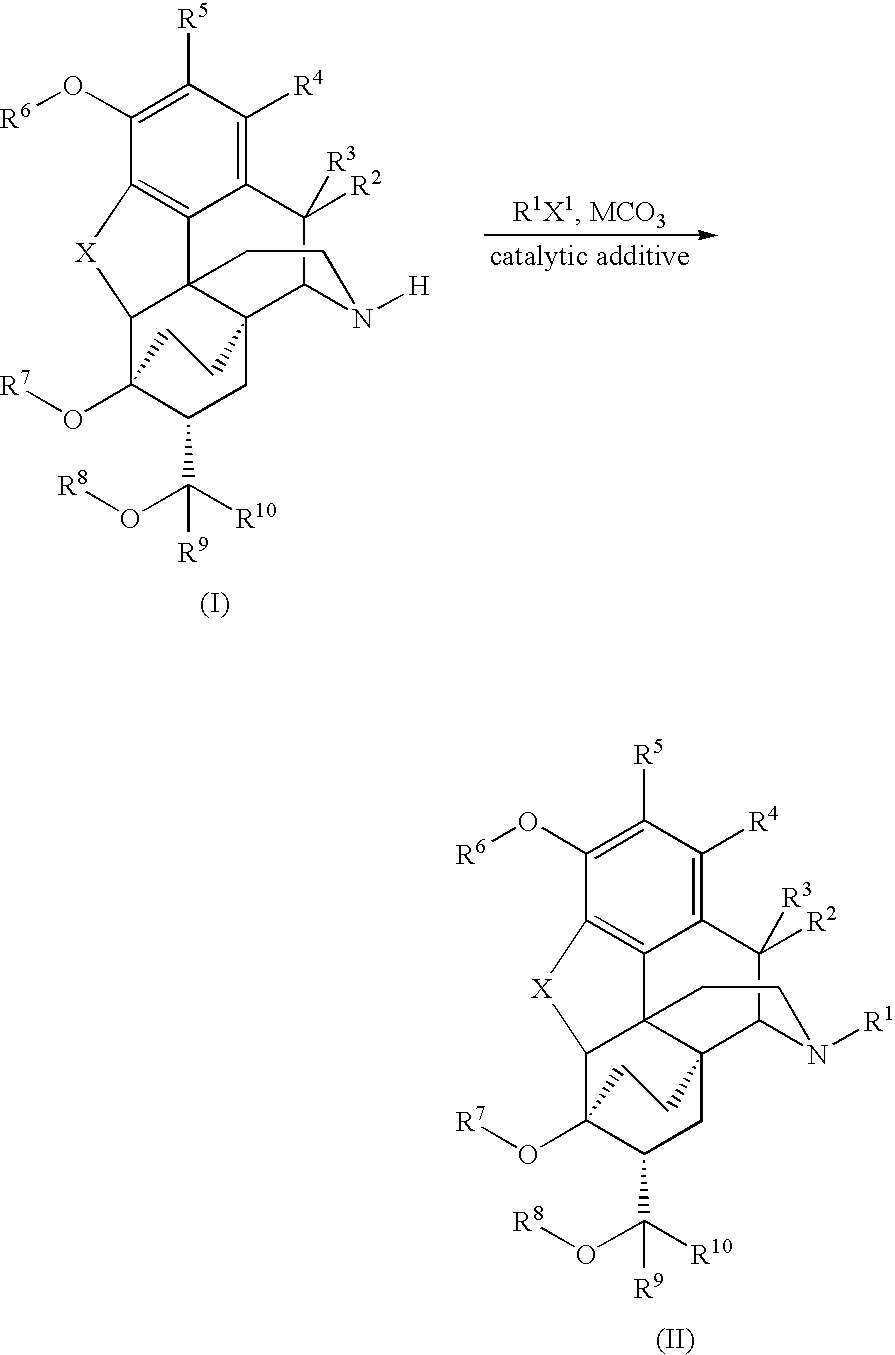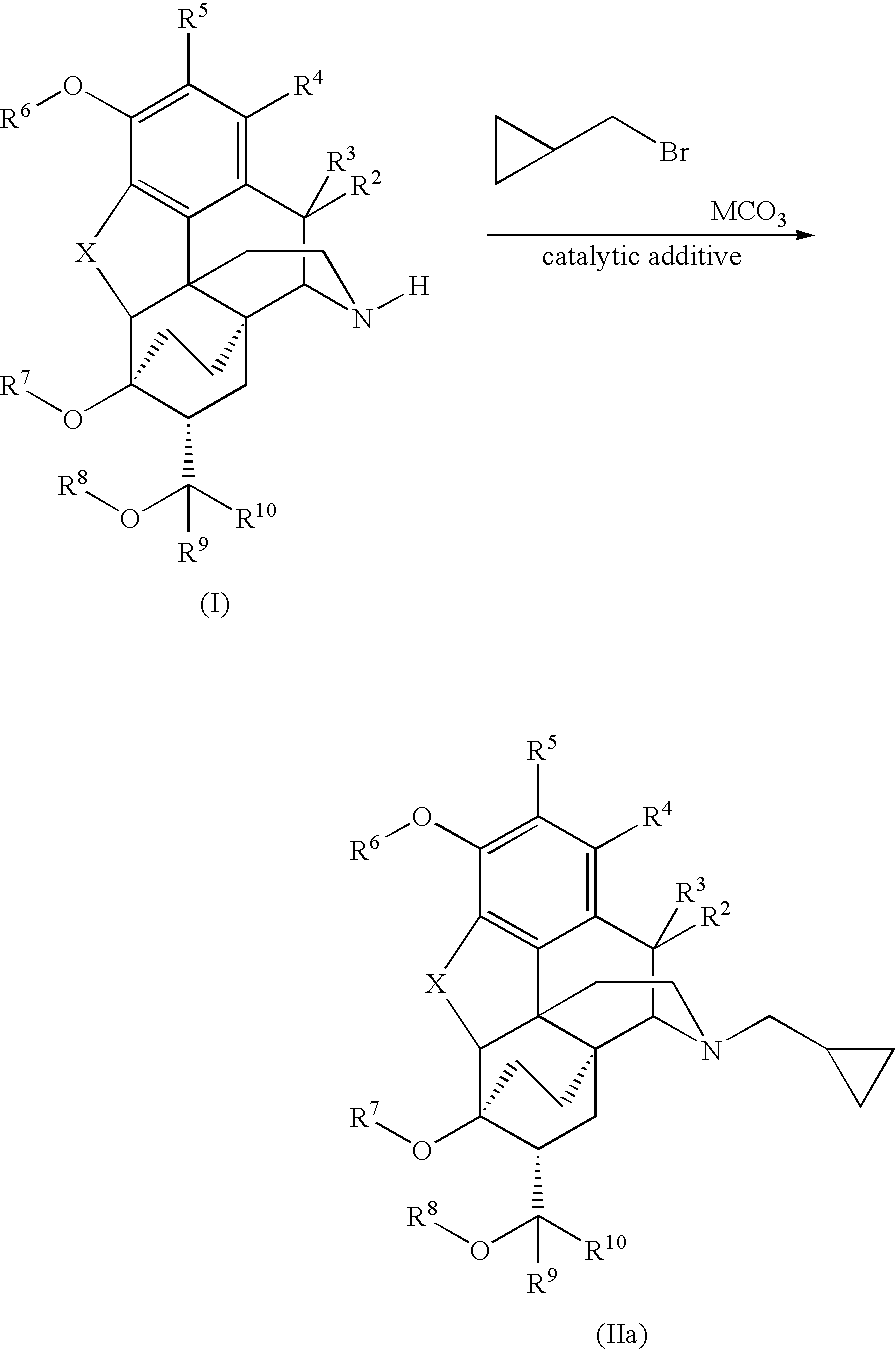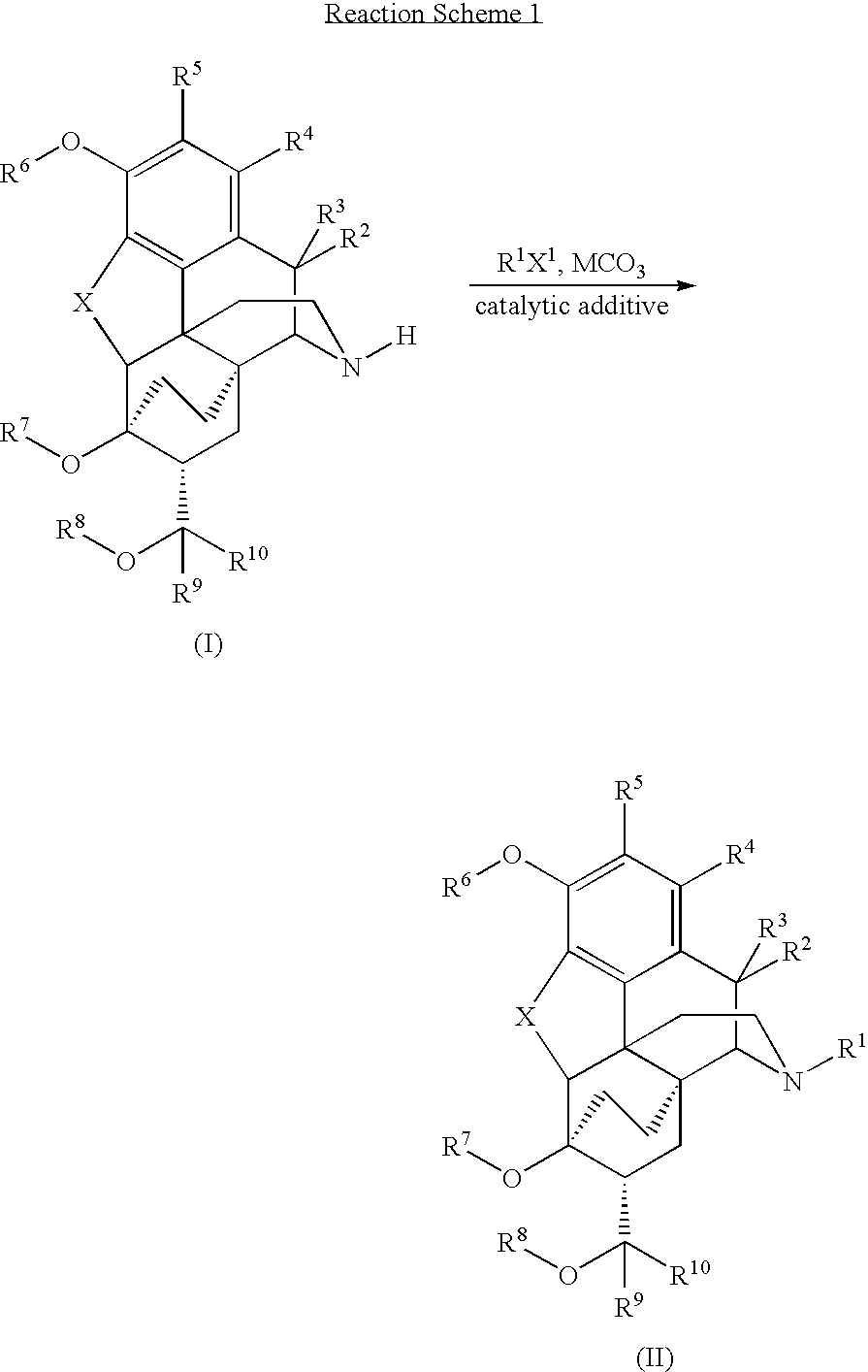Processes for the alkylation of norbuprenorphine with reduced impurity formation
a technology of norbuprenorphine and alkylation, which is applied in the field of processes for the synthesis of buprenorphine and its derivatives, and can solve the problems of cost and labor intensity
- Summary
- Abstract
- Description
- Claims
- Application Information
AI Technical Summary
Benefits of technology
Problems solved by technology
Method used
Image
Examples
example 1
Alkylation of Buprenorphine in Acetone
Table 1A below lists the reactants for the alkylation reaction.
[0095]
TABLE 1AReagentMWgvolumemolesequivalentsNorbuprenorphine413.68.000.01931.0KHCO3100.124.250.04252.2(Bromomethyl)cy-135.03.390.02511.30clopropaneAcetone100 mLKI166.014.580.02761.1, to CPM-Brd.i. water0.8 0.8 mLWork-up water160 mL
[0096]A mixture of 8.0 g of norbuprenorphine, 4.25 g of KHCO3, 4.58 g (1.1 eq to bromide) of KI and 95 mL of acetone plus 0.8 mL water is charged to a 500 mL flask with a mechanical stirrer and a condenser. Then 3.39 g of bromomethylcyclopropane (d 1.392) is measured out into a stoppered container and washed into the reaction flask with the remaining 5 mL of acetone. The mixture is refluxed under nitrogen for 6-8 hours. If TLC indicates incomplete reaction, it is refluxed 2 hours further, then cooled to room temperature.
[0097]To the stirred reaction mixture 160 mL of water is added dropwise during 15-40 minutes. The mixture is heated to 55-58° C. It is st...
example 2
Alkylation of Buprenorphine in DMF
[0102]This example shows the best product obtained from a reaction in DMF, which was of similar purity to Example 1 above. The cyclopropylmethyl bromide was the same in both Example 1 and this example (0.07% impurity). Complete reaction was only obtained at 85° C. Reagents are shown in Table 2A below.
[0103]
TABLE 2AReagentMWgvolumemolesequivalentsNorbuprenorphine413.55.050.0122NaHCO384.0(Bromomethyl)cy-135.02.231.6 mL 0.01651.35clopropaneDMF20 mLWater200 mL
[0104]A mixture of the 5.05 g of norbuprenorphine, 20 mL of DMF and 2.00 g NaHCO3 was stirred and heated to 62° C. At this point the solids were mixed and partially dissolved. The cyclopropylmethyl bromide, 1.6 mL, was added (d 1.392). The mixture was taken to 85° C. and kept there for 5.5 hours. It was allowed to cool and poured slowly into a separate flask, mechanically stirred, with 75 mL water. Some of the product may be slightly gummy solid, especially on the stirrer blade. The reaction flask...
example 3
Comparison of Levels of Impurity A
[0107]Alkylations of buprenorphine were conducted with various lots of bromomethylcyclopropane (CPMB). The different lots had varying levels of the alkenyl impurity 4-bromo-1-butene. The impurity in the CPMB alkylates in a side reaction and results in varying levels of Impurity A in the buprenorphine, as shown in the reaction scheme below:
[0108]
[0109]Experimental data showed that the amount of Impurity A produced is statistically related to the level of the butenyl impurity in the alkylating agent (e.g. CPMB). Lower levels of the butenyl impurity result in lower Impurity A levels, as the data in Table 3 shows. In particular, when Lot 26 was used, and comprised a butenyl impurity level of 0.14%, the acetone alkylations yielded Impurity A levels of between 0.05 and 0.06%. In contrast, using the same lot, but running the alkylation in DMF, yielded the higher Impurity A level of 0.12%.
[0110]
TABLE 3BromideLevel of 4-bromo-1-buteneLevel of Impurity AAlkyl...
PUM
| Property | Measurement | Unit |
|---|---|---|
| temperature | aaaaa | aaaaa |
| boiling point | aaaaa | aaaaa |
| temperature | aaaaa | aaaaa |
Abstract
Description
Claims
Application Information
 Login to View More
Login to View More - R&D
- Intellectual Property
- Life Sciences
- Materials
- Tech Scout
- Unparalleled Data Quality
- Higher Quality Content
- 60% Fewer Hallucinations
Browse by: Latest US Patents, China's latest patents, Technical Efficacy Thesaurus, Application Domain, Technology Topic, Popular Technical Reports.
© 2025 PatSnap. All rights reserved.Legal|Privacy policy|Modern Slavery Act Transparency Statement|Sitemap|About US| Contact US: help@patsnap.com



